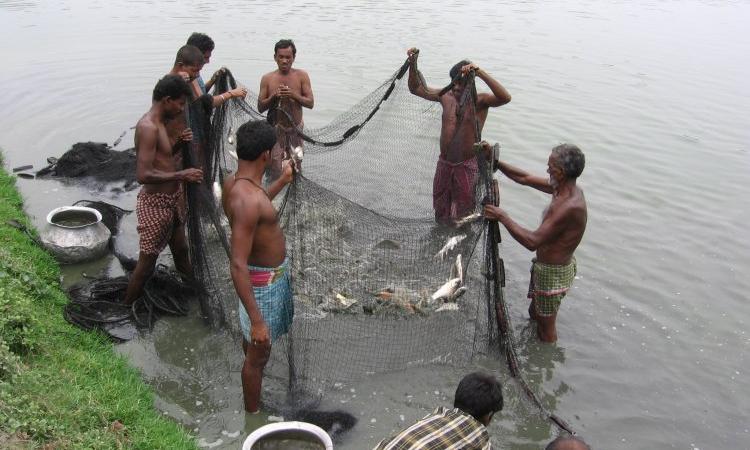
East Kolkata Wetlands found to lock down over 60 percent carbon from the wastewater it receives
One of the largest and more important natural treatment systems for solid and liquid waste, the East Kolkata Wetlands (EKW) is found to lock down over 60 percent of the carbon from incoming sewage, which would otherwise be trapped in the atmosphere. The EKW is also the world’s largest ‘wastewater-fed aquaculture system’ where the city sullage and sewage is recycled naturally for growing fish and agriculture. The wetland system treats and recycles nearly 80 percent of the sewage generated in Kolkata.
Dyeing cluster in Tiruppur demand reclassification of biological sludge from ETPs as non-hazardous waste
Dyeing cluster in the country’s knitwear capital Tiruppur has demanded the reclassification of biological sludge generated in effluent treatment plants as non-hazardous waste. With nearly 30 tonnes of bio sludge being generated daily, the cluster is having trouble disposing it of as it has been classified under the hazardous waste category. A memorandum to this effect has been submitted to the Central Pollution Control Board through the Tamil Nadu Pollution Control Board.
NGT asks Delhi Jal Board to submit list of unauthorised borewells functioning in the capital
In a bid to prevent unauthorised extraction of groundwater in Delhi, the National Green Tribunal has directed the state government to submit a list of illegal borewells running without permission in the national capital region. In January, the NGT asked the Delhi government to seal all unauthorised borewells within a period of three months in addition to identifying borewells which were discharging water contaminated with fluoride and arsenic.
BDA empowers Bellandur lake wardens to take action against those polluting it further
Bellandur lake wardens have now been empowered to take action against those found polluting the lake further by stealthily dumping garbage along its peripheries. In addition to reporting such violations and assisting lake marshals on duty, wardens will now have challan slips to issue spot fines against offenders. Spread over 951 acres, Bengaluru’s Bellandur lake has 12 lake wardens. The decision was made at a meeting of residents around the lake with the Bangalore Development Authority commissioner.
Swachh Bharat funds to the tune of Rs 403.1 million unused in Delhi
Going by the statistics from the Comptroller and Auditor General, not a single toilet has been constructed in the national capital since the inception of the Swachh Bharat Mission with nearly Rs 403.1 million meant for this purpose found to have been unused as of March, 2017. Implementing agencies include all three municipal corporations of Delhi along with the Delhi Urban Shelter Improvement Board. The report also notes that funds were released despite the bodies not assessing the requirement of household toilets.
This is a roundup of news published between April 3 and 9, 2018. Also, read policy matters this week.